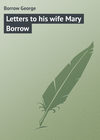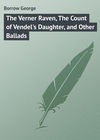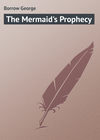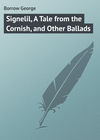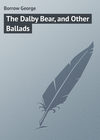Buch lesen: «Wild Wales: The People, Language, & Scenery», Seite 18
CHAPTER XXXVI
Moelfre – Owain Gwynedd – Church of Penmynnydd – The Rose of Mona.
Leaving Pentraeth Coch I retraced my way along the Bangor road till I came to the turning on the right. Here I diverged from the aforesaid road, and proceeded along one which led nearly due west; after travelling about a mile I stopped, on the top of a little hill; cornfields were on either side, and in one an aged man was reaping close to the road; I looked south, west, north and east; to the south was the Snowdon range far away, with the Wyddfa just discernible; to the west and north was nothing very remarkable, but to the east or rather north-east, was mountain Lidiart and the tall hill confronting it across the bay.
“Can you tell me,” said I to the old reaper, “the name of that bald hill, which looks towards Lidiart?”
“We call that hill Moelfre,” said the old man desisting from his labour, and touching his hat.
“Dear me,” said I; “Moelfre, Moelfre!”
“Is there anything wonderful in the name, sir?” said the old man, smiling.
“There is nothing wonderful in the name,” said I, “which merely means the bald hill, but it brings wonderful recollections to my mind. I little thought when I was looking from the road near Pentraeth Coch yesterday on that hill, and the bay and strand below it, and admiring the tranquillity which reigned over all, that I was gazing upon the scene of one of the most tremendous conflicts recorded in history or poetry.”
“Dear me,” said the old reaper; “and whom may it have been between? the French and English, I suppose.”
“No,” said I; “it was fought between one of your Welsh kings, the great Owain Gwynedd, and certain northern and Irish enemies of his.”
“Only think,” said the old man, “and it was a fierce battle, sir?”
“It was, indeed,” said I; “according to the words of a poet, who described it, the Menai could not ebb on account of the torrent of blood which flowed into it, slaughter was heaped upon slaughter, shout followed shout, and around Moelfre a thousand war flags waved.”
“Well, sir,” said the old man, “I never before heard anything about it, indeed I don’t trouble my head with histories, unless they be Bible histories.”
“Are you a Churchman?” said I.
“No,” said the old man, shortly; “I am a Methodist.”
“I belong to the Church,” said I.
“So I should have guessed, sir, by your being so well acquainted with pennillion and histories. Ah, the Church..”
“This is dreadfully hot weather,” said I, “and I should like to offer you sixpence for ale, but as I am a Churchman I suppose you would not accept it from my hands.”
“The Lord forbid, sir,” said the old man, “that I should be so uncharitable! If your honour chooses to give me sixpence, I will receive it willingly. Thank your honour! Well, I have often said there is a great deal of good in the Church of England.”
I once more looked at the hill which overlooked the scene of Owen Gwynedd’s triumph over the united forces of the Irish Lochlanders and Normans, and then after inquiring of the old man whether I was in the right direction for Penmynnydd, and finding that I was, I set off at a great pace, singing occasionally snatches of Black Robin’s ode in praise of Anglesey, amongst others the following stanza: —
“Bread of the wholesomest is found
In my mother-land of Anglesey;
Friendly bounteous men abound
In Penmynnydd of Anglesey.”
I reached Penmynnydd, a small village consisting of a few white houses and a mill. The meaning of Penmynnydd is literally the top of a hill. The village does not stand on a hill, but the church, which is at some distance, stands on one, or rather on a hillock. And it is probable from the circumstance of the church standing on a hillock, that the parish derives its name. Towards the church, after a slight glance at the village, I proceeded with hasty steps, and was soon at the foot of the hillock. A house, that of the clergyman, stands near the church, on the top of the hill. I opened a gate, and entered a lane which seemed to lead up to the church.
As I was passing some low buildings, probably offices pertaining to the house, a head was thrust from a doorway, which stared at me. It was a strange hirsute head, and probably looked more strange and hirsute than it naturally was, owing to its having a hairy cap upon it.
“Good day,” said I.
“Good days, sar,” said the head, and in a moment more a man of middle stature, about fifty, in hairy cap, shirt-sleeves, and green apron round his waist, stood before me. He looked the beau-ideal of a servant of all work.
“Can I see the church?” said I.
“Ah, you want to see the church,” said honest Scrub. “Yes sar! you shall see the church. You go up road there past church – come to house, knock at door – say what you want – and nice little girl show you church. Ah, you quite right to come and see church – fine tomb there and clebber man sleeping in it with his wife, clebber man that – Owen Tiddir; married great queen – dyn clebber iawn.”
Following the suggestions of the man of the hairy cap, I went round the church and knocked at the door of the house, a handsome parsonage. A nice little servant-girl presently made her appearance at the door, of whom I inquired whether I could see the church.
“Certainly, sir,” said she; “I will go for the key and accompany you.”
She fetched the key and away we went to the church. It is a venerable chapel-like edifice, with a belfry towards the west; the roof, sinking by two gradations, is lower at the eastern or altar end than at the other. The girl, unlocking the door, ushered me into the interior.
“Which is the tomb of Tudor?” said I to the pretty damsel.
“There it is, sir,” said she, pointing to the north side of the church; “there is the tomb of Owen Tudor.”
Beneath a low-roofed arch lay sculptured in stone, on an altar tomb, the figures of a man and woman; that of the man in armour; that of the woman in graceful drapery. The male figure lay next the wall.
“And you think,” said I to the girl, “that yonder figure is that of Owen Tudor?”
“Yes, sir,” said the girl; “yon figure is that of Owen Tudor; the other is that of his wife, the great queen; both their bodies rest below.”
I forbore to say that the figures were not those of Owen Tudor and the great queen, his wife; and I forbore to say that their bodies did not rest in that church, nor anywhere in the neighbourhood, for I was unwilling to dispel a pleasing delusion. The tomb is doubtless a tomb of one of the Tudor race, and of a gentle partner of his, but not of the Rose of Mona and Catherine of France. Her bones rest in some corner of Westminster’s noble abbey; his moulder amongst those of thousands of others, Yorkists and Lancastrians, under the surface of the plain, where Mortimer’s cross once stood, that plain on the eastern side of which meanders the murmuring Lug; that noble plain, where one of the hardest battles which ever blooded English soil was fought; where beautiful young Edward gained a crown, and old Owen lost a head, which when young had been the most beautiful of heads, which had gained for him the appellation of the Rose of Anglesey, and which had captivated the glances of the fair daughter of France, the widow of Monmouth’s Harry, the immortal victor of Agincourt.
Nevertheless, long did I stare at that tomb which, though not that of the Rose of Mona and his queen, is certainly the tomb of some mighty one of the mighty race of Theodore – then saying something in Welsh to the pretty damsel at which she started, and putting something into her hand, at which she curtseyed, I hurried out of the church.
CHAPTER XXXVII
Mental Excitation – Land of Poets – The Man in Grey – Drinking Healths – The Greatest Prydydd – Envy – Welshmen not Hogs – Gentlemanly Feeling – What Pursuit? – Tell him to Walk Up – Editor of the Times– Careful Wife – Departure.
I regained the high road by a short cut, which I discovered across a field. I proceeded rapidly along for some time. My mind was very much excited: I was in the birth-place of the mighty Tudors – I had just seen the tomb of one of them; I was also in the land of the bard; a country which had produced Gwalchmai who sang the triumphs of Owain, and him who had sung the Cowydd of Judgment, Gronwy Owen. So no wonder I was excited. On I went reciting bardic snatches connected with Anglesey. At length I began repeating Black Robin’s ode in praise of the island, or rather my own translation of it, executed more than thirty years before, which amongst others, contains the following lines: —
“Twelve sober men the muses woo,
Twelve sober men in Anglesey,
Dwelling at home, like patriots true,
In reverence for Anglesey.”
“Oh,” said I, after I had recited that stanza, “what would I not give to see one of those sober patriotic bards, or at least one of their legitimate successors, for by this time no doubt, the sober poets, mentioned by Black Robin, are dead. That they left legitimate successors who can doubt? for Anglesey is never to be without bards. Have we not the words, not of Robin the Black, but Huw the Red to that effect?
“‘Brodir, gnawd ynddi prydydd;
Heb ganu ni bu ni bydd.’
“That is: a hospitable country, in which a poet is a thing of course. It has never been and will never be without song.”
Here I became silent, and presently arrived at the side of a little dell or ravine, down which the road led from east to west. The northern and southern sides of this dell were precipitous. Beneath the southern one stood a small cottage. Just as I began to descend the eastern side, two men began to descend the opposite one, and it so happened that we met at the bottom of the dingle, just before the house, which bore a sign, and over the door of which was an inscription to the effect that ale was sold within. They saluted me; I returned their salutation, and then we all three stood still looking at one another. One of the men was rather a tall figure, about forty, dressed in grey, or pepper-and-salt, with a cap of some kind on his head, his face was long and rather good-looking, though slightly pock-broken. There was a peculiar gravity upon it. The other person was somewhat about sixty – he was much shorter than his companion, and much worse dressed – he wore a hat that had several holes in it, a dusty, rusty black coat, much too large for him; ragged yellow velveteen breeches, indifferent fustian gaiters, and shoes, cobbled here and there, one of which had rather an ugly bulge by the side near the toes. His mouth was exceedingly wide, and his nose remarkably long; its extremity of a deep purple; upon his features was a half-simple smile or leer; in his hand was a long stick. After we had all taken a full view of one another I said in Welsh, addressing myself to the man in grey, “Pray may I take the liberty of asking the name of this place?”
“I believe you are an Englishman, sir,” said the man in grey, speaking English, “I will therefore take the liberty of answering your question in the English tongue. The name of this place is Dyffryn Gaint.”
“Thank you,” said I; “you are quite right with regard to my being an Englishman; perhaps you are one yourself?”
“Sir,” said the man in grey, “I have not the honour to be so. I am a native of the small island in which we are.”
“Small,” said I, “but famous, particularly for producing illustrious men.”
“That’s very true indeed, sir,” said the man in grey, drawing himself up; “it is particularly famous for producing illustrious men.”
“There was Owen Tudor?” said I.
“Very true,” said the man in grey, “his tomb is in the church a little way from hence.”
“Then,” said I, “there was Gronwy Owen, one of the greatest bards that ever lived. Out of reverence to his genius I went yesterday to see the place of his birth.”
“Sir,” said the man in grey, “I should be sorry to leave you without enjoying your conversation at some length. In yonder house they sell good ale, perhaps you will not be offended if I ask you to drink some with me and my friend?”
“You are very kind,” said I, “I am fond of good ale, and fonder still of good company – suppose we go in?”
We went into the cottage, which was kept by a man and his wife, both of whom seemed to be perfectly well acquainted with my two new friends. We sat down on stools, by a clean white table in a little apartment with a clay floor – notwithstanding the heat of the weather, the little room was very cool and pleasant owing to the cottage being much protected from the sun by its situation. The man in grey called for a jug of ale, which was presently placed before us along with three glasses. The man in grey, having filled the glasses from the jug which might contain three pints, handed one to me, another to his companion, and then taking the third drank to my health. I drank to his, and that of his companion; the latter, after nodding to us both, emptied his at a draught, and then with a kind of half-fatuous leer, exclaimed “Da iawn, very good.”
The ale, though not very good, was cool and neither sour nor bitter; we then sat for a moment or two in silence, my companions on one side of the table, and I on the other. After a little time the man in grey looking at me said:
“Travelling I suppose in Anglesey for pleasure?”
“To a certain extent,” said I; “but my chief object in visiting Anglesey was to view the birth-place of Gronwy Owen; I saw it yesterday and am now going to Holyhead chiefly with a view to see the country.”
“And how came you, an Englishman, to know anything of Gronwy Owen?”
“I studied Welsh literature when young,” said I, “and was much struck with the verses of Gronwy: he was one of the great bards of Wales, and certainly the most illustrious genius that Anglesey ever produced.”
“A great genius I admit,” said the man in grey, “but pardon me, not exactly the greatest Ynis Fon has produced. The race of the bards is not quite extinct in the island, sir, I could name one or two – however, I leave others to do so – but I assure you the race of bards is not quite extinct here.”
“I am delighted to hear you say so,” said I, “and make no doubt that you speak correctly, for the Red Bard has said that Mona is never to be without a poet – but where am I to find one? Just before I saw you I was wishing to see a poet; I would willingly give a quart of ale to see a genuine Anglesey poet.”
“You would, sir, would you?” said the man in grey, lifting his head on high, and curling his upper lip.
“I would, indeed,” said I, “my greatest desire at present is to see an Anglesey poet, but where am I to find one?”
“Where is he to find one?” said he of the tattered hat; “where’s the gwr boneddig to find a prydydd? No occasion to go far, he, he, he.”
“Well,” said I, “but where is he?”
“Where is he? why there,” said he pointing to the man in grey – “the greatest prydydd in tîr Fon or the whole world.”
“Tut, tut, hold your tongue,” said the man in grey.
“Hold my tongue, myn Diawl, not I – I speak the truth,” then filling his glass he emptied it exclaiming, “I’ll not hold my tongue. The greatest prydydd in the whole world.”
“Then I have the honour to be seated with a bard of Anglesey?” said I, addressing the man in grey.
“Tut, tut,” said he of the grey suit.
“The greatest prydydd in the whole world,” iterated he of the bulged shoe, with a slight hiccup, as he again filled his glass.
“Then,” said I, “I am truly fortunate.”
“Sir,” said the man in grey, “I had no intention of discovering myself, but as my friend here has betrayed my secret, I confess that I am a bard of Anglesey – my friend is an excellent individual but indiscreet, highly indiscreet, as I have frequently told him,” and here he looked most benignantly reproachful at him of the tattered hat.
“The greatest prydydd,” said the latter, “the greatest prydydd that – ” and leaving his sentence incomplete he drank off the ale which he had poured into his glass.
“Well,” said I, “I cannot sufficiently congratulate myself, for having met an Anglesey bard – no doubt a graduate one. Anglesey was always famous for graduate bards, for what says Black Robin?
“‘Though Arvon graduate bards can boast,
Yet more canst thou, O Anglesey.’”
“I suppose by graduate bard you mean one who has gained the chair at an eisteddfod?” said the man in grey. “No, I have never gained the silver chair – I have never had an opportunity. I have been kept out of the eisteddfodau. There is such a thing as envy, sir – but there is one comfort, that envy will not always prevail.”
“No,” said I; “envy will not always prevail – envious scoundrels may chuckle for a time at the seemingly complete success of the dastardly arts to which they have recourse, in order to crush merit – but Providence is not asleep. All of a sudden they see their supposed victim on a pinnacle far above their reach. Then there is weeping, and gnashing of teeth with a vengeance, and the long melancholy howl. O, there is nothing in this world which gives one so perfect an idea of retribution as the long melancholy howl of the disappointed envious scoundrel when he sees his supposed victim smiling on an altitude far above his reach.”
“Sir,” said the man in grey, “I am delighted to hear you. Give me your hand, your honourable hand. Sir, you have now felt the hand-grasp of a Welshman, to say nothing of an Anglesey bard, and I have felt that of a Briton, perhaps a bard, a brother, sir? O, when I first saw your face out there in the dyffryn, I at once recognised in it that of a kindred spirit, and I felt compelled to ask you to drink. Drink sir! but how is this? the jug is empty – how is this? – O, I see – my friend, sir, though an excellent individual, is indiscreet, sir – very indiscreet. Landlord, bring this moment another jug of ale.”
“The greatest prydydd,” stuttered he of the bulged shoe – “the greatest prydydd – Oh – ”
“Tut, tut,” said the man in grey.
“I speak the truth and care for no one,” said he of the tattered hat. “I say the greatest prydydd. If any one wishes to gainsay me let him show his face, and Myn Diawl – ”
The landlord brought the ale, placed it on the table, and then stood as if waiting for something.
“I suppose you are waiting to be paid,” said I; “what is your demand?”
“Sixpence for this jug, and sixpence for the other,” said the landlord.
I took out a shilling and said: “It is but right that I should pay half of the reckoning, and as the whole affair is merely a shilling matter I should feel obliged in being permitted to pay the whole, so, landlord, take the shilling and remember you are paid.” I then delivered the shilling to the landlord, but had no sooner done so than the man in grey, starting up in violent agitation, wrested the money from the other, and flung it down on the table before me saying: —
“No, no, that will never do. I invited you in here to drink, and now you would pay for the liquor which I ordered. You English are free with your money, but you are sometimes free with it at the expense of people’s feelings. I am a Welshman, and I know Englishmen consider all Welshmen hogs. But we are not hogs, mind you! for we have little feelings which hogs have not. Moreover, I would have you know that we have money, though perhaps not so much as the Saxon.” Then putting his hand into his pocket he pulled out a shilling, and giving it to the landlord said in Welsh: “Now thou art paid, and mayst go thy ways till thou art again called for. I do not know why thou didst stay after thou hadst put down the ale. Thou didst know enough of me to know that thou didst run no risk of not being paid.”
“But,” said I, after the landlord had departed, “I must insist on being my share. Did you not hear me say that I would give a quart of ale to see a poet?”
“A poet’s face,” said the man in grey, “should be common to all, even like that of the sun. He is no true poet, who would keep his face from the world.”
“But,” said I, “the sun frequently hides his head from the world, behind a cloud.”
“Not so,” said the man in grey. “The sun does not hide his face, it is the cloud that hides it. The sun is always glad enough to be seen, and so is the poet. If both are occasionally hid, trust me it is no fault of theirs. Bear that in mind; and now pray take up your money.”
“The man is a gentleman,” thought I to myself, “whether poet or not; but I really believe him to be a poet; were he not he could hardly talk in the manner I have just heard him.”
The man in grey now filled my glass, his own and that of his companion. The latter emptied his in a minute, not forgetting first to say “the best prydydd in all the world!” The man in grey was also not slow to empty his own. The jug now passed rapidly between my two friends, for the poet seemed determined to have his full share of the beverage. I allowed the ale in my glass to remain untasted, and began to talk about the bards, and to quote from their works. I soon found that the man in grey knew quite as much of the old bards and their works as myself. In one instance he convicted me of a mistake.
I had quoted those remarkable lines in which an old bard, doubtless seeing the Menai Bridge by means of second sight, says: – “I will pass to the land of Mona notwithstanding the waters of Menai, without waiting for the ebb” – and was feeling not a little proud of my erudition when the man in grey, after looking at me for a moment fixedly, asked me the name of the bard who composed them – “Sion Tudor,” I replied.
“There you are wrong,” said the man in grey; “his name was not Sion Tudor, but Robert Vychan, in English, Little Bob. Sion Tudor wrote an englyn on the Skerries whirlpool in the Menai; but it was Little Bob who wrote the stanza in which the future bridge over the Menai is hinted at.”
“You are right,” said I, “you are right. Well, I am glad that all song and learning are not dead in Ynis Fon.”
“Dead,” said the man in grey, whose features began to be rather flushed, “they are neither dead, nor ever will be. There are plenty of poets in Anglesey – why, I can mention twelve, and amongst them, and not the least – pooh, what was I going to say? – twelve there are, genuine Anglesey poets, born there, and living there for the love they bear their native land. When I say they all live in Anglesey, perhaps I am not quite accurate, for one of the dozen does not exactly live in Anglesey, but just over the bridge. He is an elderly man, but his awen, I assure you, is as young and vigorous as ever.”
“I shouldn’t be at all surprised,” said I, “if he was a certain ancient gentleman, from whom I obtained information yesterday, with respect to the birth-place of Gronwy Owen.”
“Very likely,” said the man in grey; “well, if you have seen him consider yourself fortunate, for he is a genuine bard, and a genuine son of Anglesey, notwithstanding he lives across the water.”
“If he is the person I allude to,” said I, “I am doubly fortunate, for I have seen two bards of Anglesey.”
“Sir,” said the man in grey, “I consider myself quite as fortunate in having met such a Saxon as yourself, as it is possible for you to do, in having seen two bards of Ynis Fon.”
“I suppose you follow some pursuit besides bardism?” said I; “I suppose you farm?”
“I do not farm,” said the man in grey, “I keep an inn.”
“Keep an inn?” said I.
“Yes,” said the man in grey. “The – Arms at L – .”
“Sure,” said I, “inn-keeping and bardism are not very cognate pursuits?”
“You are wrong,” said the man in grey, “I believe the awen, or inspiration, is quite as much at home in the bar as in the barn, perhaps more. It is that belief which makes me tolerably satisfied with my position, and prevents me from asking Sir Richard to give me a farm instead of an inn.”
“I suppose,” said I, “that Sir Richard is your landlord?”
“He is,” said the man in grey, “and a right noble landlord too.”
“I suppose,” said I, “that he is right proud of his tenant?”
“He is,” said the man in grey, “and I am proud of my landlord, and will here drink his health. I have often said that if I were not what I am, I should wish to be Sir Richard.”
“You consider yourself his superior?” said I.
“Of course,” said the man in grey – “a baronet is a baronet; but a bard is a bard you know – I never forget what I am, and the respect due to my sublime calling. About a month ago I was seated in an upper apartment, in a fit of rapture; there was a pen in my hand, and paper before me on the table, and likewise a jug of good ale, for I always find that the awen is most prodigal of her favours, when a jug of good ale is before me. All of a sudden my wife came running up, and told me that Sir Richard was below, and wanted to speak to me. ‘Tell him to walk up,’ said I. ‘Are you mad?’ said my wife. ‘Don’t you know who Sir Richard is?’ ‘I do,’ said I, ‘a baronet is a baronet, but a bard is a bard. Tell him to walk up.’ Well, my wife went and told Sir Richard that I was writing, and could not come down, and that she hoped he would not object to walk up. ‘Certainly not; certainly not,’ said Sir Richard. ‘I shall be only too happy to ascend to a genius on his hill. You may be proud of such a husband, Mrs. W.’ And here it will be as well to tell you that my name is W – , J. W. of – . Sir Richard then came up, and I received him with gravity and politeness. I did not rise, of course, for I never forget myself a moment, but I told him to sit down, and added that after I had finished the pennill I was engaged upon, I would speak to him. Well, Sir Richard smiled and sat down, and begged me not to hurry myself, for that he could wait. So I finished the pennill, deliberately, mind you, for I did not forget who I was, and then turning to Sir Richard entered upon business with him.”
“I suppose Sir Richard is a very good-tempered man?” said I.
“I don’t know,” said the man in grey. “I have seen Sir Richard in a devil of a passion, but never with me – no, no! Trust Sir Richard for not riding the high horse with me – a baronet is a baronet, but a bard is a bard; and that Sir Richard knows.”
“The greatest prydydd,” said the man of the tattered hat, emptying the last contents of the jug into his glass, “the greatest prydydd that – ”
“Well,” said I, “you appear to enjoy very great consideration, and yet you were talking just now of being ill-used.”
“So I have been,” said the man in grey, “I have been kept out of the eisteddfodau – and then – what do you think? That fellow the editor of the Times– ”
“O,” said I, “if you have anything to do with the editor of the Times you may, of course, expect nothing but shabby treatment, but what business could you have with him?”
“Why I sent him some pennillion for insertion, and he did not insert them.”
“Were they in Welsh or English?”
“In Welsh, of course.”
“Well, then the man had some excuse for disregarding them – because you know the Times is written in English.”
“O, you mean the London Times,” said the man in grey. “Pooh! I did not allude to that trumpery journal, but the Liverpool Times, the Amserau. I sent some pennillion to the editor for insertion and he did not insert them. Peth a clwir cenfigen yn Saesneg?”
“We call cenfigen in English envy,” said I; “but as I told you before, envy will not always prevail.”
“You cannot imagine how pleased I am with your company,” said the man in grey. “Landlord, landlord!”
“The greatest prydydd,” said the man of the tattered hat, “the greatest prydydd.”
“Pray don’t order any more on my account,” said I, “as you see my glass is still full. I am about to start for Caer Gybi. Pray where are you bound for?”
“For Bangor,” said the man in grey. “I am going to the market.”
“Then I would advise you to lose no time,” said I, “or you will infallibly be too late; it must now be one o’clock.”
“There is no market to-day,” said the man in grey, “the market is to-morrow, which is Saturday. I like to take things leisurely, on which account, when I go to market, I generally set out the day before, in order that I may enjoy myself upon the road. I feel myself so happy here that I shall not stir till the evening. Now pray stay with me and my friend till then.”
“I cannot,” said I, “if I stay longer here I shall never reach Caer Gybi to-night. But allow me to ask whether your business at L – will not suffer by your spending so much time on the road to market?”
“My wife takes care of the business whilst I am away,” said the man in grey, “so it won’t suffer much. Indeed it is she who chiefly conducts the business of the inn. I spend a good deal of time from home, for besides being a bard and innkeeper, I must tell you I am a horse-dealer and a jobber, and if I go to Bangor it is in the hope of purchasing a horse or pig worth the money.”
“And is your friend going to market too?” said I.
“My friend goes with me to assist me and bear me company. If I buy a pig he will help me to drive it home; if a horse, he will get up upon its back behind me. I might perhaps do without him, but I enjoy his company highly. He is sometimes rather indiscreet, but I do assure you he is exceedingly clever.”
“The greatest prydydd,” said the man of the bulged shoe, “the greatest prydydd in the world.”
“O, I have no doubt of his cleverness,” said I, “from what I have observed of him. Now before I go allow me to pay for your next jug of ale.”
“I will do no such thing,” said the man in grey. “No farthing do you pay here for me or my friend either. But I will tell you what you may do. I am, as I have told you, an innkeeper as well as a bard. By the time you get to L – you will be hot and hungry and in need of refreshment, and if you think proper to patronize my house, the – Arms by taking your chop and pint there, you will oblige me. Landlord, some more ale.”
“The greatest prydydd,” said he of the bulged shoe, “the greatest prydydd – ”
“I will most certainly patronize your house,” said I to the man in grey, and shaking him heartily by the hand I departed.











